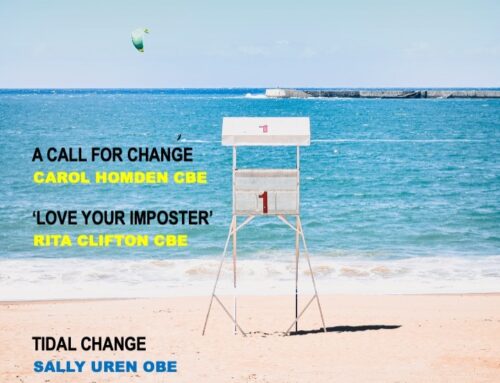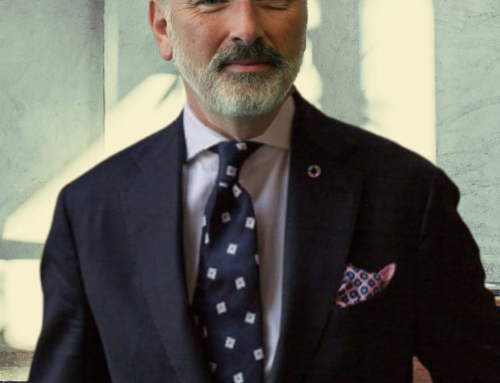Britain’s Global Opportunity

In the week that America got a new President, Britain was also presented with a less heralded but potentially redefining opportunity. Our Presidency of the 2021 G7 Summit was formally launched.
That a summit will take place at all this year is good news. There is much to discuss. The agenda with its focus on COVID-19 recovery, climate and the economy is also rooted in the shared values of ‘open’ societies with their functioning democracies, protection of civil liberties, intolerance of corruption and accountability of those in power. Whilst G7 countries still largely meet this definition, large swathes of the globe remain ‘closed’. The struggles for freedom in Belarus, the detention of the Uighur in China, and the apparent poisoning of Alexey Navalny by his own government all serve as sobering reminders of the immediate challenge at hand.
If Britain, partnered with a newly re-engaged USA, and other G7 nations truly seek to promote these ‘open society’ values in the face of such repressive regimes, then, concrete actions are called for rather than the empty promises of many summits. In particular, it must become beyond explicit that open societies will be no place to stash the proceeds of harmful misdeeds in closed societies.
This is the moment for the UK to showcase its growing expertise on tackling an issue which riddles closed societies and is an increasing threat to the G7: dirty money – the proceeds of global corruption, tainted by the fingerprints of the kleptocrats and their cronies who wield unchecked power over the very states whose ‘values’ the G7 seek to oppose. Their illicit wealth makes its way to the financial centres of the G7 that end up laundering stolen public money along with the proceeds of bribery, embezzlement, illegal seizure of state assets or rigged procurement. It’s no secret that the UK has a dirty money problem. When Transparency International UK conducted forensic analysis of 400 global corruption cases back in 2019, we found that £325billion of illegitimately acquired funds had worked their way to the UK aided by 582 British firms and individuals. Where did this money come from? Top of the list was Russia with involvement in more than 50 cases, with China and various states of Central Asia hot on its heels.
Yet Britain is also considered by its peers to have the best anti-money-laundering policy of any G7 economy and has been among the nations leading the fight against it. This is a credible foundation from which to build.
Recent action on dirty money and company transparency by the US Congress also shows that America, traditionally the G7’s most persuasive voice, certainly has an appetite for action on corruption. The freshly-minted Biden administration is already mulling how to most effectively battle illicit finance ahead of a planned Global Summit for Democracy. Taken together with the G7, 2021 becomes a critical opportunity to drive real change; the work to maximise this opportunity, and with ambition, needs to start immediately.
Back in 2005, I was a practising journalist and among many to cover the G8 Summit at Gleneagles. There had been an intense focus on global poverty and climate change in the run up to the UK’s Presidency. The ‘Make Poverty History’ campaign was never far from the headlines. The outcome was an historic package of debt relief for poorer countries and five-year pledges of around $50billion to support their future development. It didn’t meet the aspirations of all parties, but it’s still considered one of the most successful summits of its kind; with much of this success put down to the intensive diplomacy and public mobilisation across the G8 in the months beforehand.
Now is the time to recreate that sense of urgency and purpose to tackle dirty money and corruption. Key to this is shutting off the supply lines for the kleptocrats’ illicit wealth, often stolen from some of the most impoverished people on earth.
Firstly, that will mean leaders of the free world committing to double down on corrupt and repressive regimes. Whether through coordinated sanctions or the courts, the UK and its allies should pursue corrupt individuals and their assets however they can.
Secondly, the UK should move further in its efforts to provide leadership on good governance. Introducing long-awaited legislation to increase company and property transparency here would help give momentum to recent action in the United States to end corporate secrecy on its soil.
Thirdly, there should be greater accountability – here and abroad – for those who willingly assist in the abuse of high office. For too long, those caught being complicit, enjoy a life of impunity.
To show that the UK stands by its calls for action, strong anti-corruption measures should also be built into free trade agreements to level the playing field for those seeking to ‘do business with integrity’.
Progress on all of these fronts would provide the real momentum needed, on such a critical issue, before hosting the G7 in June. As a nation redefining its place in the world, it is a powerful place to start.
Daniel Bruce
Chief Executive, Transparency International UK
Twitter: @DanielJBruce
Twitter: @TransparencyUK
https://www.transparency.org.uk/


Britain’s Global Opportunity

In the week that America got a new President, Britain was also presented with a less heralded but potentially redefining opportunity. Our Presidency of the 2021 G7 Summit was formally launched.
That a summit will take place at all this year is good news. There is much to discuss. The agenda with its focus on COVID-19 recovery, climate and the economy is also rooted in the shared values of ‘open’ societies with their functioning democracies, protection of civil liberties, intolerance of corruption and accountability of those in power. Whilst G7 countries still largely meet this definition, large swathes of the globe remain ‘closed’. The struggles for freedom in Belarus, the detention of the Uighur in China, and the apparent poisoning of Alexey Navalny by his own government all serve as sobering reminders of the immediate challenge at hand.
If Britain, partnered with a newly re-engaged USA, and other G7 nations truly seek to promote these ‘open society’ values in the face of such repressive regimes, then, concrete actions are called for rather than the empty promises of many summits. In particular, it must become beyond explicit that open societies will be no place to stash the proceeds of harmful misdeeds in closed societies.
This is the moment for the UK to showcase its growing expertise on tackling an issue which riddles closed societies and is an increasing threat to the G7: dirty money – the proceeds of global corruption, tainted by the fingerprints of the kleptocrats and their cronies who wield unchecked power over the very states whose ‘values’ the G7 seek to oppose. Their illicit wealth makes its way to the financial centres of the G7 that end up laundering stolen public money along with the proceeds of bribery, embezzlement, illegal seizure of state assets or rigged procurement. It’s no secret that the UK has a dirty money problem. When Transparency International UK conducted forensic analysis of 400 global corruption cases back in 2019, we found that £325billion of illegitimately acquired funds had worked their way to the UK aided by 582 British firms and individuals. Where did this money come from? Top of the list was Russia with involvement in more than 50 cases, with China and various states of Central Asia hot on its heels.
Yet Britain is also considered by its peers to have the best anti-money-laundering policy of any G7 economy and has been among the nations leading the fight against it. This is a credible foundation from which to build.
Recent action on dirty money and company transparency by the US Congress also shows that America, traditionally the G7’s most persuasive voice, certainly has an appetite for action on corruption. The freshly-minted Biden administration is already mulling how to most effectively battle illicit finance ahead of a planned Global Summit for Democracy. Taken together with the G7, 2021 becomes a critical opportunity to drive real change; the work to maximise this opportunity, and with ambition, needs to start immediately.
Back in 2005, I was a practising journalist and among many to cover the G8 Summit at Gleneagles. There had been an intense focus on global poverty and climate change in the run up to the UK’s Presidency. The ‘Make Poverty History’ campaign was never far from the headlines. The outcome was an historic package of debt relief for poorer countries and five-year pledges of around $50billion to support their future development. It didn’t meet the aspirations of all parties, but it’s still considered one of the most successful summits of its kind; with much of this success put down to the intensive diplomacy and public mobilisation across the G8 in the months beforehand.
Now is the time to recreate that sense of urgency and purpose to tackle dirty money and corruption. Key to this is shutting off the supply lines for the kleptocrats’ illicit wealth, often stolen from some of the most impoverished people on earth.
Firstly, that will mean leaders of the free world committing to double down on corrupt and repressive regimes. Whether through coordinated sanctions or the courts, the UK and its allies should pursue corrupt individuals and their assets however they can.
Secondly, the UK should move further in its efforts to provide leadership on good governance. Introducing long-awaited legislation to increase company and property transparency here would help give momentum to recent action in the United States to end corporate secrecy on its soil.
Thirdly, there should be greater accountability – here and abroad – for those who willingly assist in the abuse of high office. For too long, those caught being complicit, enjoy a life of impunity.
To show that the UK stands by its calls for action, strong anti-corruption measures should also be built into free trade agreements to level the playing field for those seeking to ‘do business with integrity’.
Progress on all of these fronts would provide the real momentum needed, on such a critical issue, before hosting the G7 in June. As a nation redefining its place in the world, it is a powerful place to start.
Daniel Bruce
Chief Executive, Transparency International UK
Twitter: @DanielJBruce
Twitter: @TransparencyUK
https://www.transparency.org.uk/





